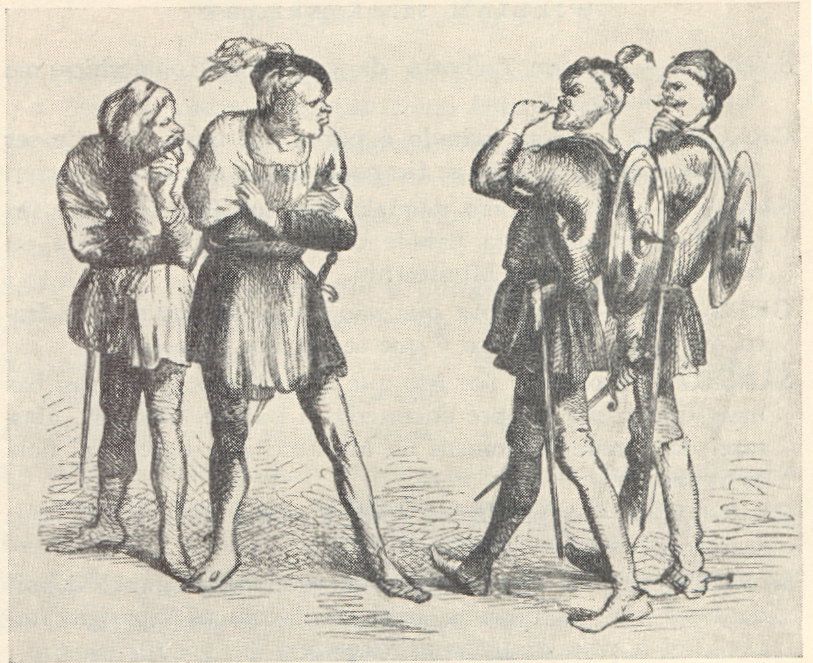Bardfilm and I were joking this afternoon that my daughter, who is now studying Romeo and Juliet, is in the enviable (?) position of knowing more about the entire play than most of her classmates, setting her up to be the one they turn to for answers to all their questions. So of course we started considering how she might abuse that power…
Romeo and Juliet Helpful (Not Really) Homework Answers
There’s a lost scene from the Quarto version of Romeo and Juliet where the Nurse tries to resuscitate Tybalt, which explains why she is called Nurse.
Mercutio is supposed to be on drugs during the “Queen Mab” speech. The 1996 Leonardo DiCaprio interpretation is one of the few that gets that correct. It’s not supposed to make any sense.
Friar Laurence was arrested for illegally trading in herbs. That’s why the young lovers have to visit him in his cell.
Audiences so completely misunderstood the ending, assuming Friar Laurence was executed for his role in the deaths of Romeo and Juliet, that Shakespeare inserted a cameo for him in Two Gentlemen of Verona, the play he’d written by popular demand to show off Valentine, Mercutio’s brother.
The Rolling Stones made the play relevant by turning Romeo’s response to Juliet’s “What satisfaction canst thou have tonight?” into one of their biggest hits: “(I Can’t Get No) Satisfaction.”
A “thumb” is an Italian dessert on a stick—something like a popsicle gelato. Eating one while pointing the stick at someone was considered very rude.
The planet Mercury was discovered in 1599, the same year Shakespeare wrote Romeo and Juliet. That’s where he got the name Mercutio.
“Wherefore” actually does mean “where”. Your English teacher is just messing with you.
Perhaps the most famous speech in the play comes near the end of Act V. Romeo says, “Juliet, the dice was loaded from the start / And I bet and you exploded in my heart / And I forget, I forget.”
The “ancient grudge,” as explained in the original source material, refers to a time two generations prior when the patriarchs of both the Capulet and Montague families were wrestlers who battled frequently at fairs an exhibitions around Italy.
“Arise, fair sun, and kill the envious moon” is a not-so-subtle jab at the actor who played Moon in A Midsummer Night’s Dream, who was known backstage to have a serious attitude problem.
Mercutio and Valentine were supposed to be twin brothers, and the play a traditional farce. When the actors all got together and told Shakespeare, “No more twins!” he killed Mercutio out of spite and rewrote the second half.
This above all: you must have fun with it. Shakespeare doesn’t make life better by being stodgy and stuffy and difficult, a chore to approach with fear and trepidation. Don’t ever be afraid to get silly with it. Laugh at the parts you think are funny. Make up weird back stories for the minor characters. Rewrite your favorite song lyrics to fit the play. Drop a reference here and there and see who picks it up. When you read and understand and remember Shakespeare you have a special bond with millions of other people, across the world and throughout history, who read and understood and remember it, too. We do this for fun, and there’s always room for more to join the game.



